Wildlife Ecology and Conservation
- Understand how to measure and assess biodiversity
- Perform field skills to survey various taxa such as plants, insects, reptiles, amphibians, birds, and mammals
- Evaluate animal movement and presence using radio-telemetry, acoustic monitoring, and camera traps
- Assess disease presence through non-invasive genetic techniques in the lab
- Quantify landscape patterns related to habitat fragmentation and loss, and the impacts of land use
- Analyze patterns of global environmental change and species distributions
- Develop a plan to monitor and evaluate a species of conservation concern
- Semesters offered
Fall | Mason’s academic calendar
- Credits
- Cost
Tuition | Mason’s tuition and fees
Semester Fee | $2048 per semester
Mandatory Room and Board | Pricing Structure
- Who is eligible?
3rd- and 4th-year undergraduates with at least 60 credit hours from any accredited college or university and post-baccalaureate students. Previous coursework should include at least one upper-level course in the biological sciences or related discipline, a previous semester at SMSC, or permission from the instructor
Meet the Faculty

Smithsonian-Mason School of Conservation
Living and Learning at SMSC
Each cohort (20 or fewer students) lives and studies together on site at the SMSC campus. Students follow an intensive, structured schedule to get the most out of this conservation-focused experience.
- Classroom, lab, or field work 10:00 am – 3 pm, 5 days per week
- A 5-week independent research project working with a conservation mentor to design a study and present your findings to the professional conservation community
- Field experiences at Smithsonian Conservation Biology Institute or nearby sites
- Additional seminars and instruction from guests or visiting conservation practitioners
Surveying Wood Turtles
Wood turtles are severely endangered in Virginia and a frequent subject of field study in our classes. We teach students survey methods to monitor their populations to help ensure that the species will survive.




